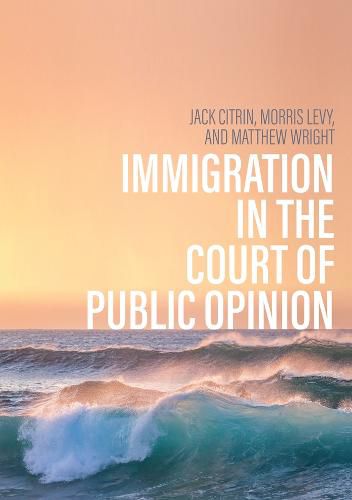Readings Newsletter
Become a Readings Member to make your shopping experience even easier.
Sign in or sign up for free!
You’re not far away from qualifying for FREE standard shipping within Australia
You’ve qualified for FREE standard shipping within Australia
The cart is loading…






What does a nation of immigrants think and feel about immigration? Recent accounts of immigration policy routinely cast Americans as divided into two warring camps - one fueled by threat to livelihoods and way of life, the other by a fervent cosmopolitanism that sees the nation-state as passe.
This counter-intuitive book shows that these accounts miss the mark. First, almost all Americans hold a mix of
pro-
and
anti-immigrant
opinions. Their views are pragmatic and flexible rather than dead-set. Second, opinions about immigration are more powerfully influenced by liberal values and concerns about the well-being of American society as a whole than by identity politics. Third, the assimilation Americans demand from immigrants matches patterns of integration that Hispanic and Asian immigrants overwhelmingly follow. Finally, American attitudes toward immigrants are
exceptional
for their openness and respect for cultural pluralism.
In Citrin, Levy, and Wright’s view, long-elusive comprehensive immigration reform can win in the court of public opinion - but only if leaders heed their constituents rather than the polarized activists who claim to speak on their behalf. This expert analysis rethinks the role of public opinion in immigration matters: its insights will be welcomed by all interested in immigration debates and public policy.
$9.00 standard shipping within Australia
FREE standard shipping within Australia for orders over $100.00
Express & International shipping calculated at checkout
What does a nation of immigrants think and feel about immigration? Recent accounts of immigration policy routinely cast Americans as divided into two warring camps - one fueled by threat to livelihoods and way of life, the other by a fervent cosmopolitanism that sees the nation-state as passe.
This counter-intuitive book shows that these accounts miss the mark. First, almost all Americans hold a mix of
pro-
and
anti-immigrant
opinions. Their views are pragmatic and flexible rather than dead-set. Second, opinions about immigration are more powerfully influenced by liberal values and concerns about the well-being of American society as a whole than by identity politics. Third, the assimilation Americans demand from immigrants matches patterns of integration that Hispanic and Asian immigrants overwhelmingly follow. Finally, American attitudes toward immigrants are
exceptional
for their openness and respect for cultural pluralism.
In Citrin, Levy, and Wright’s view, long-elusive comprehensive immigration reform can win in the court of public opinion - but only if leaders heed their constituents rather than the polarized activists who claim to speak on their behalf. This expert analysis rethinks the role of public opinion in immigration matters: its insights will be welcomed by all interested in immigration debates and public policy.